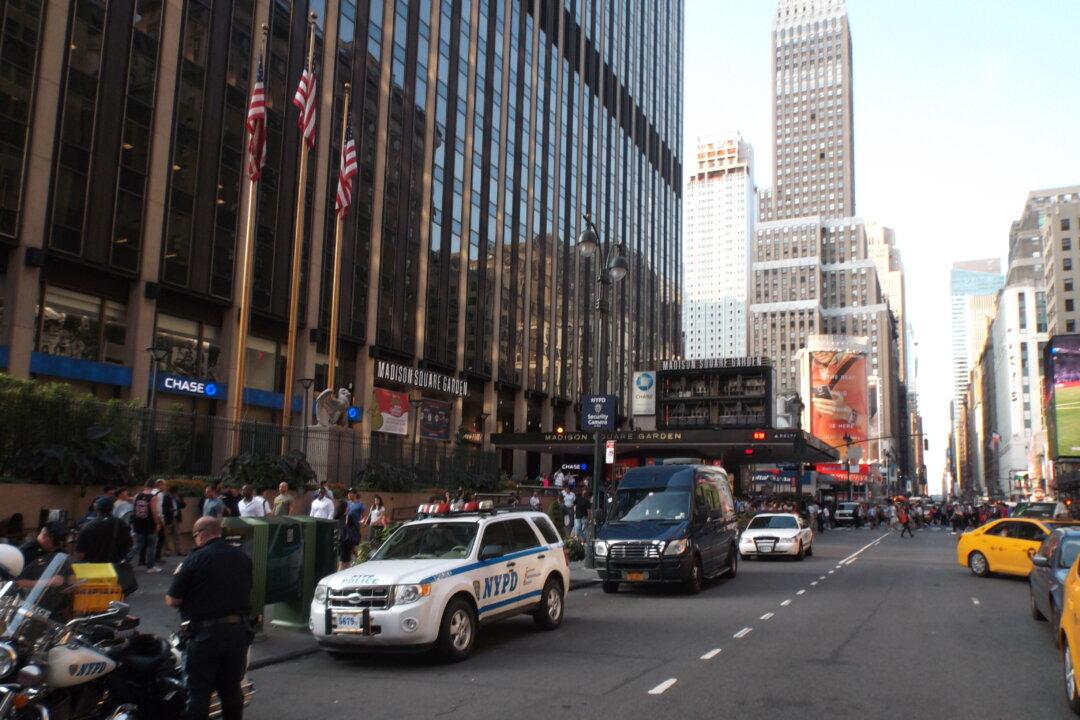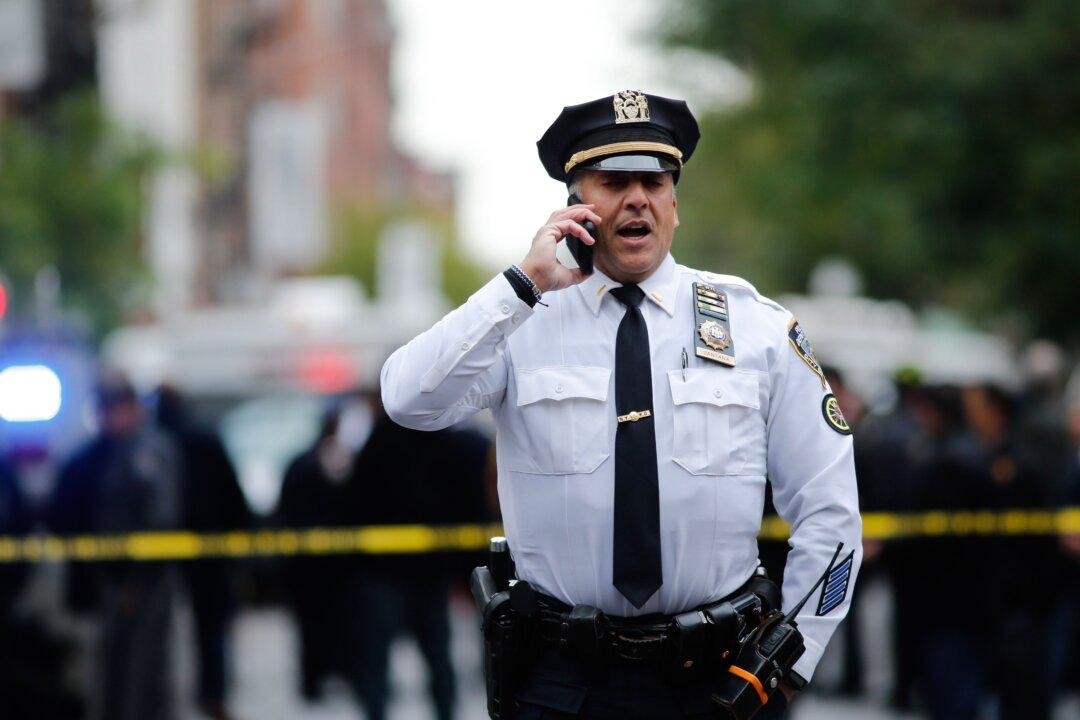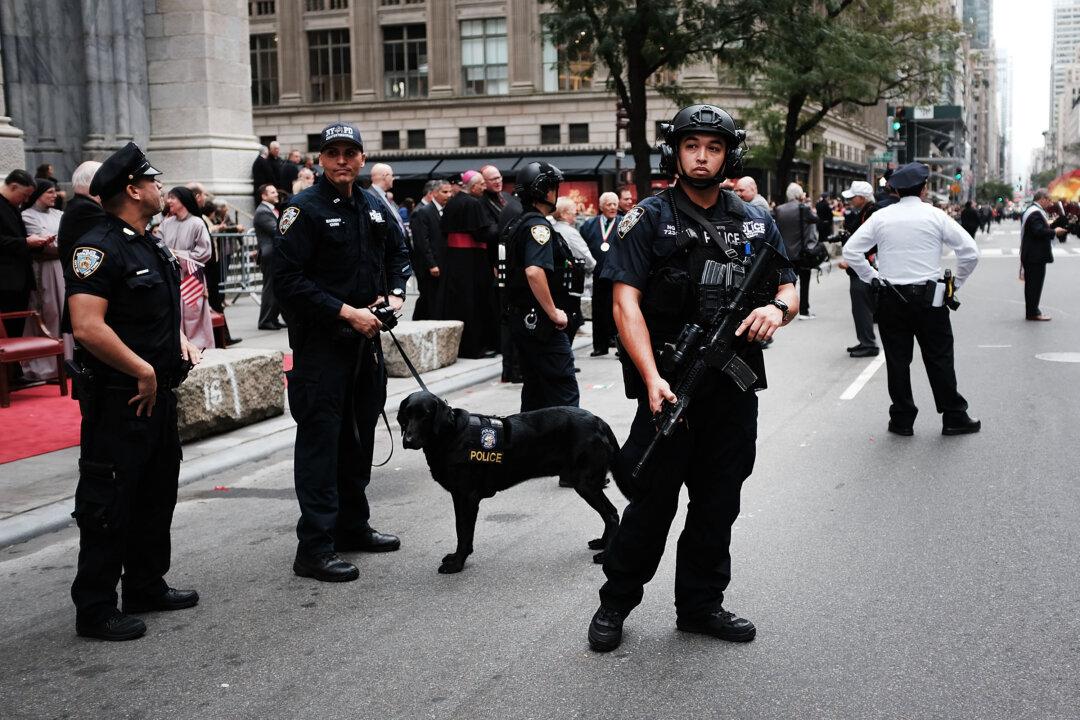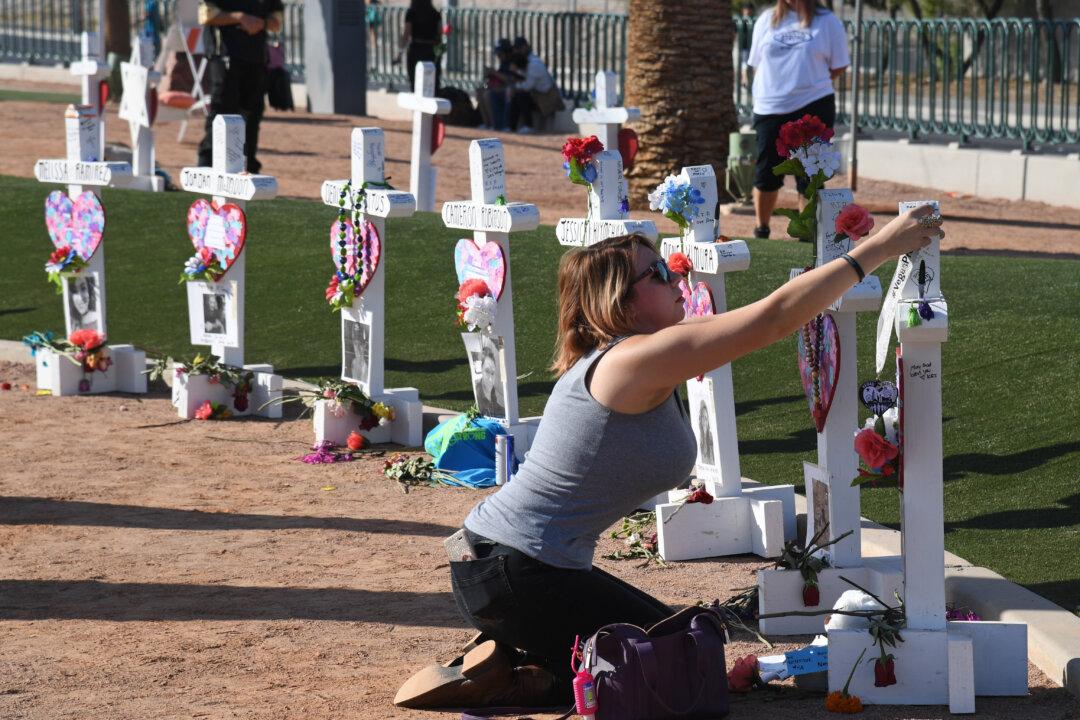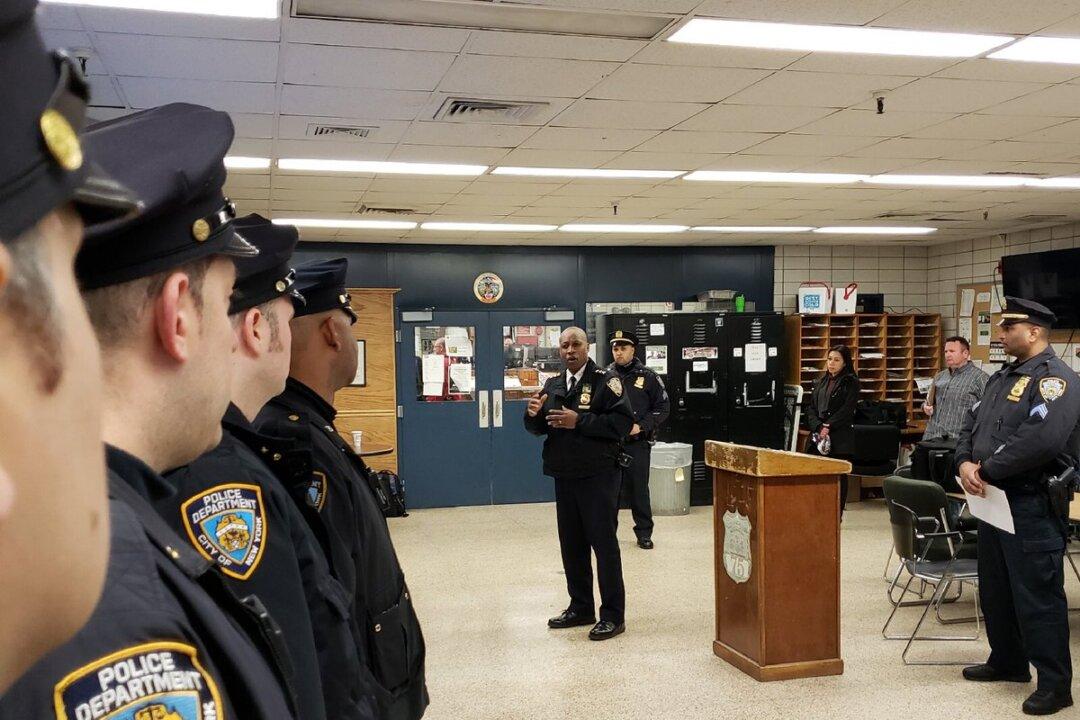The culture is about to change for the NYPD, but first we must take time to commend acts of officer heroism.
The following example headlines—representing a few incidents among countless ones that never receive press coverage—give perspective and remind us of the courage, dedication, and professionalism of ethical protectors who wear the NYPD badge:
• Sept. 14—Video shows NYPD rescue of stranded jet skier from a small island off Staten Island’s east shore
• Sept. 12—NYPD protects teen from committing suicide off Brooklyn Bridge
• Sept. 7—NYPD Harbor Unit rescues teen stranded on rocks off Coney Island
• Sept. 7—Officers witness Brooklyn shooting, arrest suspect
• Sept. 5—NYPD helicopter rescues man who had heart attack
• Aug. 26—NYPD officer rescues Bronx baby girl with CPR
• Aug. 25—2 NYPD officers come to rescue of baby not breathing in Brooklyn
• Jul. 30—NYPD detective wounded in West Village shootout with accused child molester
Aside from these heroics, the inherent challenges to NYPD officers also deserve appreciation. These headlines remind us of the dangers our police officers face each day:
• Sept. 11—NYPD cop in serious condition after responding to fire
• Sept. 11—NYPD, Port Authority honor members lost in 9/11 attacks
• Sept. 3—NYPD sergeant mourned after dying from 9/11-related cancer
• Aug. 31—NYPD officer grazed by bullet in shooting
• Aug. 30—3 NYPD officers hurt by thrown objects from rooftop
• Aug. 3—Assaults on the NYPD are on the rise
• Apr. 9—NYPD officer dies after Coney Island arson
• Jul. 28—2 U.S. marshals, NYPD detective shot in West Village
NYPD Commissioner’s Vision
On Sept. 8, NYPD Commissioner William J. Bratton appeared before New York City Council. Bratton, in his completely transparent trademark style, acknowledged the need for a fundamental transformation with the NYPD.
The commissioner stated the NYPD is “committed to constitutional and respectful policing.” Bratton also emphasized that the NYPD must change from “an overarching focus on police activity, as measured in the number of stops, summonses, and arrests, to an emphasis on problem solving in the community.”
Bratton continued with plans to re-educate all 35,000 officers with negotiating skills, leadership techniques, Sir Robert Peel’s policing principles, diversity, crime prevention, and building respect with the community.
Bratton will begin with a pilot program that includes use-of-force training. This is a direct response to the Staten Island tragedy of an unarmed man selling loose cigarettes who died while being taken into custody. The man’s death was ruled a homicide by the medical examiner.
An officer’s training in the academy at the beginning of one’s career must never stand alone. Effective training requires ongoing programs, testing, and evaluations throughout a career.
In my opinion, credible and effective training must also include expertise from numerous disciplines outside law enforcement, certifications, and accreditation of precincts and units based on stringent requirements.
NYPD: Rise to the Occasion
As an educator who has conducted ethics, leadership, and policing presentations for law enforcement nationwide, I commend Bratton for his dedication to transformational change of the world’s most renowned police department. The commissioner’s vision to change NYPD culture from an overshadowing, statistically driven department to an ethically oriented and community-focused one is praiseworthy. It is the right step at the perfect time in the right direction.
Dedication to this police-people collaboration deserves full-force dedication of all members of the NYPD and community.
The ethical dimension of law enforcement is critical and must be the heart of every police officer. The NYPD will be organizationally transformative with building trust in communities when ethical development, accountability, and transparency are the heart of training initiatives.
The results of the NYPD vision will be a high performance department that cultivates integrity, integrates public safety with citizen rights; enhances crime prevention, diversity, and mutual trust; and showcases the NYPD as a police-community model for reawakening the nation.

